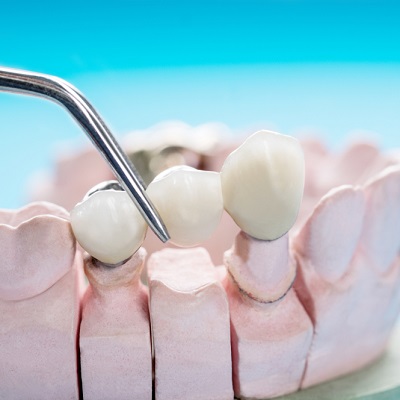Getting a dental crown is a common procedure to restore a damaged or weakened tooth, but the recovery period is crucial for ensuring that the crown fits well and functions properly. Following these recovery tips can help you manage any discomfort, avoid complications, and ensure the longevity of your dental crown.
1. Follow Post-Procedure Instructions:
Your dentist will provide specific aftercare instructions tailored to your individual needs. These may include advice on pain management, dietary restrictions, and oral hygiene practices. It’s important to follow these instructions carefully to promote healing and avoid issues with the crown.
2. Manage Discomfort:
It’s normal to experience some discomfort or sensitivity after the placement of a dental crown. This can be managed with over-the-counter pain relievers such as ibuprofen or acetaminophen, as recommended by your dentist. Applying a cold compress to the outside of your face near the affected area can also help reduce swelling and alleviate pain.
3. Maintain Good Oral Hygiene:
Proper oral hygiene is essential for preventing complications and ensuring the longevity of your dental crown. Brush your teeth twice a day with fluoride toothpaste and floss daily, being gentle around the crown. Regular brushing and flossing help prevent plaque buildup and keep the gum tissue around the crown healthy.
4. Avoid Certain Foods:
For the first few days after your crown placement, avoid hard, sticky, or chewy foods that could damage the temporary crown or cause discomfort. Stick to soft foods like yogurt, mashed potatoes, and soups. Once your permanent crown is in place and fully set, you can gradually reintroduce a wider variety of foods, but continue to avoid excessive pressure on the crown.
5. Avoid Chewing on Hard Objects:
To protect both your natural teeth and your crown, avoid chewing on hard objects like ice, pens, or fingernails. These can place undue stress on the crown and increase the risk of damage or dislodgement.
6. Use a Night Guard if Necessary:
If you grind your teeth or have bruxism, your dentist may recommend a night guard to protect your crown and natural teeth. A night guard is a custom-fitted appliance that helps prevent damage from teeth grinding during sleep.
7. Monitor for Any Issues:
Keep an eye out for any signs of problems with your crown, such as persistent discomfort, an ill-fitting sensation, or visible damage. If you experience any issues, contact your dentist promptly for evaluation and resolution. Early intervention can prevent more serious complications.
8. Attend Follow-Up Appointments:
Your dentist will schedule follow-up appointments to check the fit and function of your crown. These visits are important to ensure that the crown is seated correctly and that your bite is properly aligned. Make sure to attend these appointments and communicate any concerns you may have.
9. Avoid Alcohol and Tobacco:
Alcohol and tobacco use can interfere with the healing process and affect the longevity of your dental crown. It’s best to avoid these substances during the recovery period to ensure optimal healing and minimize risks.
10. Stay Hydrated:
Drinking plenty of water helps maintain good oral health and overall well-being. Staying hydrated supports the healing process and helps keep your mouth clean and free from bacteria that could affect the crown.
11. Be Patient:
Recovery times can vary depending on individual factors and the complexity of the procedure. It’s important to be patient and allow your mouth the time it needs to adjust to the new crown. Most people find that any discomfort subsides within a few days, and they return to their normal routines relatively quickly.
Conclusion:
Recovering from a dental crown procedure involves careful attention to post-procedure care, good oral hygiene, and monitoring for any issues. By following these recovery tips, you can help ensure that your crown heals properly, fits comfortably, and serves you well for many years. If you have any concerns or questions during your recovery, don’t hesitate to reach out to your dentist for guidance and support.
For more information visit Enfield royal clinic in Islamabad.
